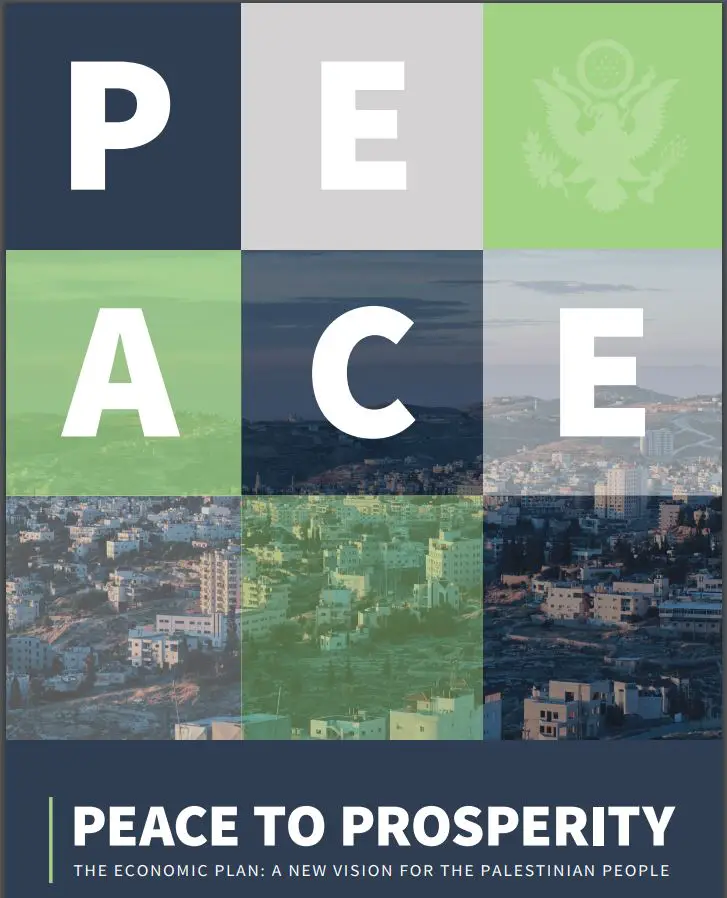Peace to Prosperity -- The Economic Plan: A New Vision for the Palestinian People
(July 2019)

In July 2019, the Trump administration released the economic component of its much-anticipated peace plan at a conference in Bahrain. Preparations for the conference got off to an inauspicious start when the Palestinians announced they were boycotting the meeting because they saw it as an effort to “buy off Palestinian political aspirations by financial means.” Without Palestinian participation, it became politically impossible to invite the Israelis (though some business people attended) so the conference took place without the parties involved.
The Arab states ignored the Palestinians’ call to boycott the conference, though some did send lower-level officials. Palestinian businesspeople were also warned not to attend. The 15 who did were arrested, threatened and harassed when they returned.
The 38-page “Peace to Prosperity” plan calls on Arab states to supply $50 billion in development aid to the Palestinians. Two of the goals are to double the GDP of the Palestinians and create one million jobs over the next ten years. The funding includes money to create economic opportunities for women and grants for a variety of projects, from building hospitals to promoting tourism to upgrading the Gaza power plant. It also seeks to encourage regional integration and cooperation.
The Israelis objected to the $5 billion proposal for a highway and railway between the West Bank and Gaza Strip. They fear that this indicate the administration sees the two areas as a single territorial unit and would pose a security threat. Earlier peace negotiations, however, envisioned a similar solution to linking the areas if a Palestinian state was created. Jason Greenblatt, the Special Representative for International Negotiations, tried to reassure the Israelis when he said during the conference, “We are not suggesting any corridor whatsoever that doesn't completely make Israel comfortable that it will not be a danger to Israel.”
None of the Arab states responded to the solicitation for money and the United States did not offer to contribute any funds.
While some commentators viewed the economic plan as an important first step in an evolutionary process toward peace; others argued it was pointless to focus on economics without fulfilling Palestinians’ political demands.
Sources: David Makovsky, “Jared Kushner’s all-or-nothing mistake in the Middle East,” Washington Post, (July 1, 2019);
Khaled Abu Toameh, “Hebron Businessman Who Attended Bahrain: I'm Afraid For My Life,” Jerusalem Post, (July 1, 2019);
“Peace to Prosperity,” The White House, Undated, released in July 2019;
Barak Ravid, “Netanyahu wary of West Bank-Gaza corridor in Trump peace plan,” Axios, (July 16, 2019);
Ahmed Charai, “Kushner’s Middle East Plan Wins Its First Round,” The National Interest, (June 29, 2019);
Loveday Morris, “Kushner presents vision of a Middle East at peace but no details how to get there,” Washington Post, (June 25, 2019).


